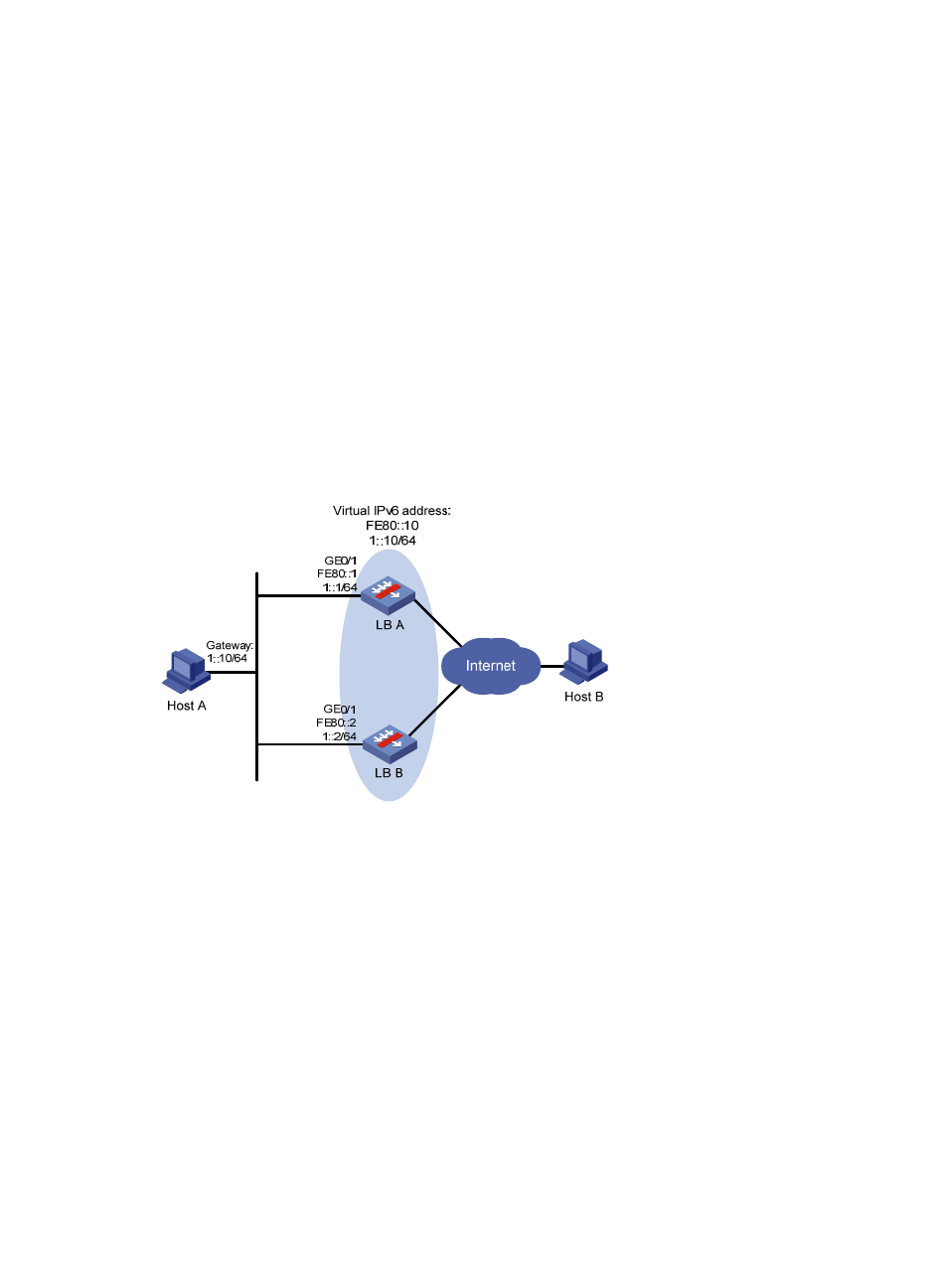Ipv6 vrrp configuration examples, Single vrrp group configuration example, Network requirements – H3C Technologies H3C SecBlade LB Cards User Manual
Page 63: Configuration procedure

55
Forwarder Weight Track Information:
Track Object : 1 State : Positive Weight Reduced : 250
The output shows that when LB B fails, LB C becomes the master.
IPv6 VRRP configuration examples
Single VRRP group configuration example
Network requirements
•
LB A and LB B belong to VRRP group 1 with the virtual IPv6 addresses of 1::10/64 and FE80::10.
•
Host A wants to access Host B on the Internet. Host A learns 1::10/64 as its default gateway through
the RA messages sent by the routers.
•
When LB A operates properly, packets sent from Host A to Host B are forwarded by LB A. When LB
A fails, packets sent from Host A to Host B are forwarded by LB B.
Figure 29 Network diagram
Configuration procedure
1.
Configure LB A:
[LBA] ipv6
[LBA] interface gigabitethernet0/1
[LBA-GigabitEthernet0/1] ipv6 address fe80::1 link-local
[LBA-GigabitEthernet0/1] ipv6 address 1::1 64
# Create a VRRP group 1 and set its virtual IPv6 addresses to FE80::10 and 1::10.
[LBA-GigabitEthernet0/1] vrrp ipv6 vrid 1 virtual-ip fe80::10 link-local
[LBA-GigabitEthernet0/1] vrrp ipv6 vrid 1 virtual-ip 1::10
# Configure the priority of LB A in VRRP group 1 as 110, which is higher than that of LB B (100),
so that LB A can become the master.
[LBA-GigabitEthernet0/1] vrrp ipv6 vrid 1 priority 110
